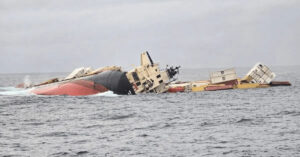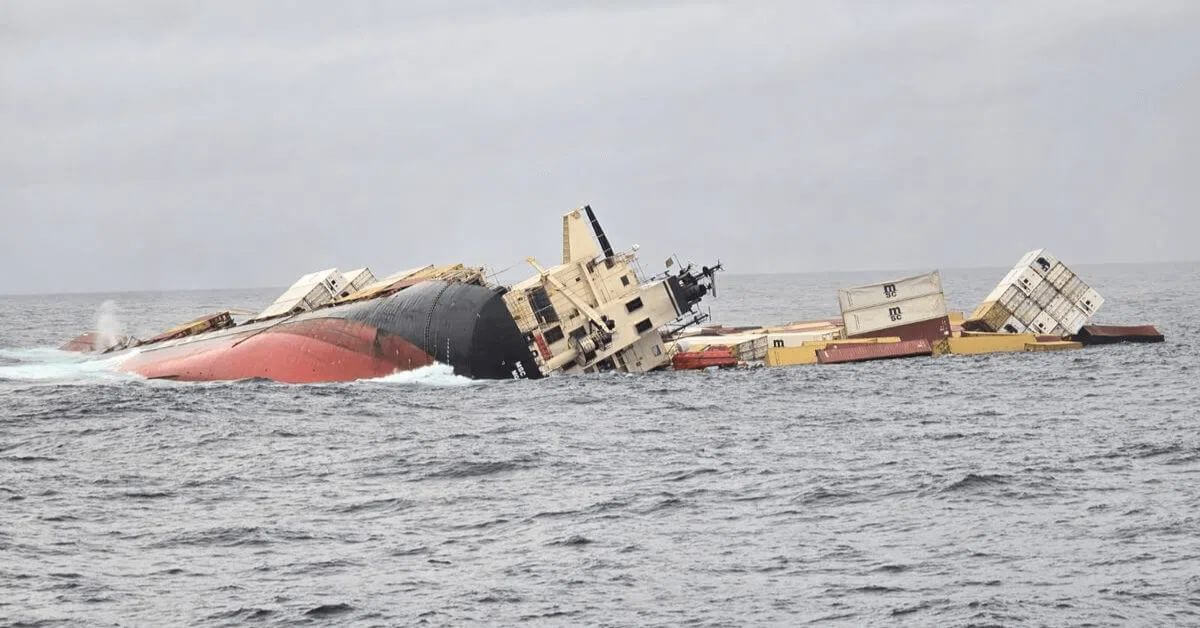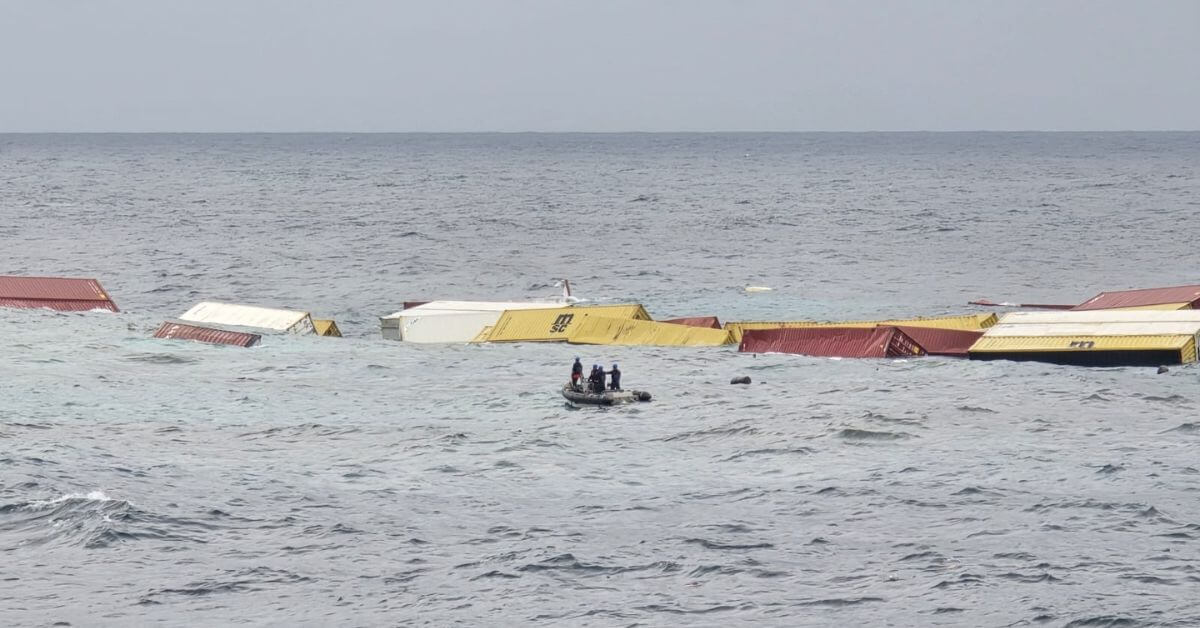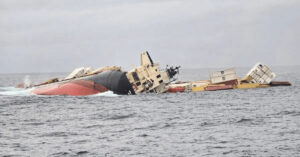
Panama Canal Launches NetZero Slot To Advance Maritime Decarbonisation
September 15, 2025
IFC Signs $500 Million Deal With Basrah Gas For Energy & Port Expansion In Iraq
September 15, 2025

The owners of the sunken container ship MSC Elsa 3 have declared that their financial responsibility for the May 25 shipwreck off the Kerala coast is limited to ₹132 crore, a figure far lower than the ₹9,531 crore compensation claim raised by the Kerala government.
A public notice issued in two leading Kerala dailies at the direction of the High Court announced that all potential claimants, cargo owners, fisherfolk, and others, must file claims before the court by September 18, 2025, the date of the next hearing.
The notice was published by advocate Pranoy K Kottaram on behalf of the shipowners, Elsa 3 Maritime Inc. (Liberia), Multi Container Management S.A. (Panama), and MSC Mediterranean Shipping Co. S.A. (Switzerland).
The owners have pegged their total liability at 10,435,912 Special Drawing Rights (SDR), an international reserve currency created by the IMF. This amount, when converted, stands at about ₹132 crore.
They are seeking to establish a limitation fund of this amount by using Section 352A of the Merchant Shipping Act, 1958, which follows the International Convention on Limitation of Liability for Maritime Claims (LLMC). If accepted, all claims will be restricted to the fund, and the company’s assets will be shielded from arrest or attachment.
— Indian Coast Guard (@IndiaCoastGuard) May 24, 2025
In their lawsuit, the shipowners have requested a permanent order to prevent their vessels or assets from being arrested or seized over this incident. Legal experts say this could keep MSC’s global operations running smoothly but might significantly lower compensation for those affected.
The Kerala government, however, has opposed this approach, insisting that the disaster caused large-scale ecological damage, widespread coastal pollution, and long-term losses for fisherfolk.
The state maintains that its ₹9,531 crore claim is justified under the “polluter pays” principle, constitutional protections for the right to life and environment, and India’s commitments under international conventions such as MARPOL. Officials also argue that the LLMC’s liability cap does not apply when negligence or reckless conduct is involved.
Maritime lawyer Harish Vasudevan said the ship failed safety checks, carried hazardous cargo, and that MSC delayed sharing its cargo details, all of which point to negligence. He explained that under the Admiralty (Jurisdiction and Settlement of Maritime Claims) Act, 2017, the Kerala High Court can override LLMC protections, citing past cases like the Enrica Lexie dispute.
All 24 crew members ex Liberian-flagged container Vessel MSC ELSA 3 rescued safely, 21 by @IndiaCoastGuard & 03 by @indiannavy Ship Sujata after vessel sank off #Kochi this morning. Vessel was carrying 640 containers, including 13 containing hazardous cargo and 12 with calcium… pic.twitter.com/990qmogVJR
— Indian Coast Guard (@IndiaCoastGuard) May 25, 2025
The MSC Elsa 3, a Liberian-flagged container vessel, sank on May 25, 2025, off Kochi while carrying hundreds of containers, including dangerous goods. The wreck released large volumes of oil and trillions of plastic nurdles into the Arabian Sea, fouling beaches from Alappuzha to Thiruvananthapuram. Per reports, fishing nets and boat engines were ruined, and in several villages, families have pawned jewellery or even abandoned fishing.
The Kerala Swathantra Matsya Thozhilali Federation said that publishing newspaper notices with strict deadlines was humiliating, accusing MSC of using “corporate strategy” to minimise responsibility. Fisherfolk claimed the disaster continues to disrupt their lives, while the polluter remains shielded by international law.
Greenpeace India campaigner S.N. Amruta called MSC’s refusal to acknowledge long-term damage “corporate negligence” and “environmental injustice,” urging the case to set a precedent against polluters walking free. Greenpeace researcher Aakiz Farooq described the release of nurdles as “slow violence,” warning that they persist for decades, infiltrating fish stocks, mangroves, seagrass, and even the UNESCO-listed Gulf of Mannar Biosphere Reserve, creating what he termed an “invisible, generational poison.”

MSC has defended its response. Company nodal officer in Kerala, Jacob George, said it was an unforeseen accident and that MSC has been working with local authorities since day one. He reported that in the past four months, over 1,000 tonnes of debris were collected from the coast between Kochi and Rameswaram, with the help of 600 daily-wage workers. He said that the issue of compensation is for the courts to decide, and MSC will respect the verdict.
Meanwhile, public anger is spreading. Last week, 20 fishing boats staged a sea protest, unfurling a giant floating banner reading “MSC Shipwreck: Who Pays?”.
Coastal residents have also reported cases of skin rashes, respiratory distress, and chronic fatigue, with the National Fishworkers Forum petitioning the Prime Minister and the National Disaster Management Authority to declare the situation an occupational health emergency.
References: onmanorama, hindustantimes
Source: Maritime Shipping News


